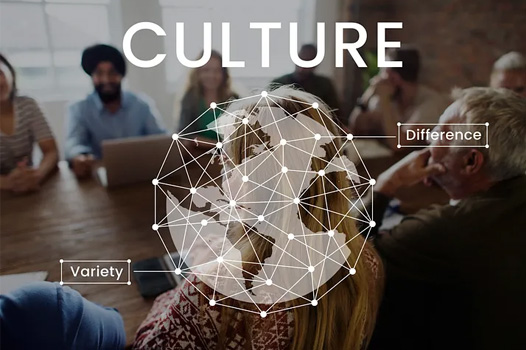Changing the Game: The Evolution of Management and the Central Role of Coaching
by Preeti Prayag
4 minutes read
In a bustling conference room of a prominent tech firm, I recently had the privilege to oversee a brainstorming session between seasoned senior executives and a passionate team of Gen Z and Millennial professionals. The contrast was as palpable as it was enlightening, offering a snapshot into the evolving paradigms of modern management and the pressing need to rewrite the conventional rules.
Generational Handover: Beyond a Mere Succession
 Historically, each generational transition within organisations came with its own set of challenges and adaptations. However, the current generational handover of leadership is not just a change in who sits at the head of the table but a shift in the very ethos that dictates the tone of the room.
Historically, each generational transition within organisations came with its own set of challenges and adaptations. However, the current generational handover of leadership is not just a change in who sits at the head of the table but a shift in the very ethos that dictates the tone of the room.
Millennials and Gen Z are not mere successors in the corporate hierarchy; they are harbingers of a new culture. These cohorts grew up in a digitised world, experienced the globalisation of ideas, and were groomed amidst rapid technological advances. These generations bring forth a new set of non-negotiable values and principles, seeking more from their workplaces.
Decoding the New Age Professional DNA
The tectonic shifts in the global socio-political and technological landscapes have shaped the worldview of Millennials and Gen Z. In recent years, I’ve observed that these young professionals aren’t seeking mere employment but an alignment of purpose. They demand:
· Work Flexibility: Not just in terms of hours, but also in terms of roles, responsibilities, and even locations.
· Holistic Well-being: It’s not just about paid leaves; it’s about mental health days, retreats, and spaces for reflection.
· Social and Environmental Responsibility: These generations are deeply attuned to global issues, seeking workplaces that resonate with their values.
For Millennials and Gen Z, these are not mere preferences; they are steadfast expectations. It’s not just about adapting to these requirements but understanding that these aren’t mere perks or benefits.
The Central Role of Coaching
Here lies the central role of coaching in navigating this profound shift. At Mentoring Matters, coaching goes beyond the conventional. It’s about understanding the unique needs, values, and expectations of the diverse workforce. Coaching is the bridge that connects generations, ensuring a seamless integration of values, skills, and perspectives.
In this era of transformation, coaching emerges as the keystone for building strategic relationships and fostering a harmonious organisational culture. It equips leaders with the insight to understand the changing workforce dynamics and the tools to effectively manage and lead diverse teams. Senior leaders offer experience-based wisdom, while the younger cohort brings fresh perspectives, innovative solutions, and a pulse on the latest trends. Harnessing this synergy requires a leadership style that is more collaborative, adaptive, and inclusive.
 Coaching in this landscape, particularly at Mentoring Matters, is not just about guiding young professionals. It’s about equipping leaders to bridge generational gaps, fostering environments that cater to diverse needs, and crafting strategies that leverage the strengths of every team member.
Coaching in this landscape, particularly at Mentoring Matters, is not just about guiding young professionals. It’s about equipping leaders to bridge generational gaps, fostering environments that cater to diverse needs, and crafting strategies that leverage the strengths of every team member.
For Executives and Managers: Coaching provides the framework for leaders to effectively communicate the vision for change, inspire teams, and manage resistance, ensuring that the transformation vision is not only clear but achievable.
For Teams: Coaching enhances collaboration, problem-solving, and adaptation skills, ensuring teams not only navigate change effectively but thrive within it.
For Individuals: Coaching aids in developing essential skills and mindsets for thriving in a transformed organisational setting, ensuring a smooth personal and professional transformation journey.
In coaching, leaders find a reliable ally to guide them in understanding and embracing the ethos of the new-age workforce. It prepares them for leading a generation that values flexibility, diversity, and social consciousness, ensuring the organization not just adapts but thrives in this evolving landscape. It is not a supplemental support system but a critical, central element in navigating the changing tides of the professional world.
 As we stand at this pivotal juncture, the need to rewrite the traditional paradigms of management is unmistakable. Embracing coaching as a central strategy is not just beneficial but vital in guiding organizations through this transformative journey, ensuring they emerge resilient, relevant, and ready for the future, fostering an environment where every generation thrives.
As we stand at this pivotal juncture, the need to rewrite the traditional paradigms of management is unmistakable. Embracing coaching as a central strategy is not just beneficial but vital in guiding organizations through this transformative journey, ensuring they emerge resilient, relevant, and ready for the future, fostering an environment where every generation thrives.
To delve deeper into the impact of coaching on organisational transformation, explore our detailed blog here(to be linked once blog is live), offering comprehensive insights and strategies to navigate this change seamlessly.
- Previous article:
- Next article:
PREETI PRAYAG
Preeti Prayag is the co-founder of Mentoring Matters, a platform for businesses and individuals across industries to drive holistic professional growth across mid and senior-level positions through dedicated coaching by certified professionals.